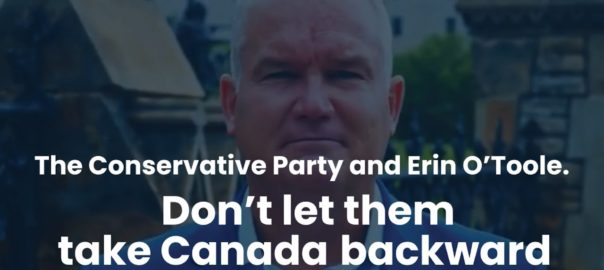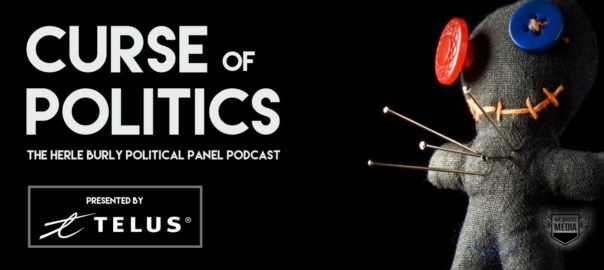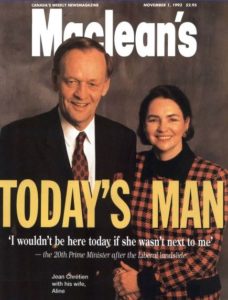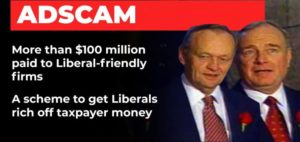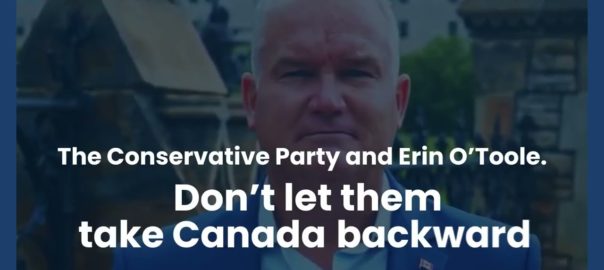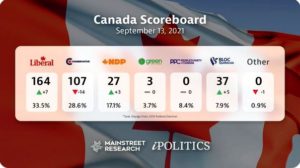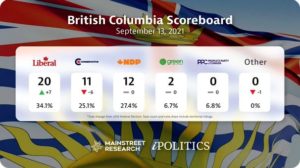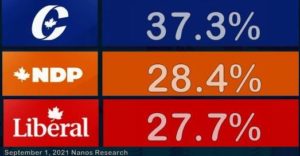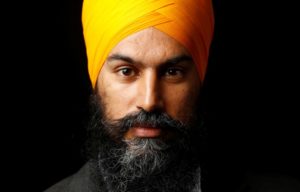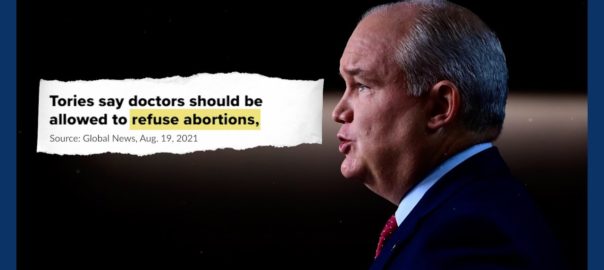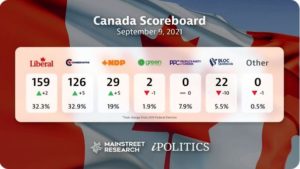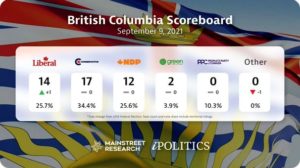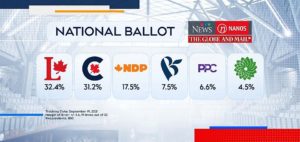
The final Nanos / Globe and Mail poll in #Elxn44. Now we simply await the outcome of the election.
Well, here we are, Election Day — Monday, September 20th. At this point, it’s anybody’s guess as to the outcome, but a Liberal minority seems probable.
In the final VanRamblings #Elxn44 written prior to E-Day — we’ll be weighing in again tomorrow, Tuesday, September 21st, once the results of today’s federal election have been tabulated — we tried to do our very best to make sense of where Canadians stood heading to the polls to choose the next government of Canada.
Erin O’Toole and the Conservative Party of Canada
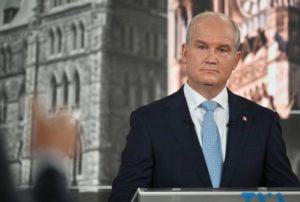
A few days ago, VanRamblings believed that Erin O’Toole had an even odds chance of forming a majority — or, at the very least, a significant minority government — once (almost) all the votes have been counted late on the evening of Monday, September 20th. With the rise of the People’s Party of Canada, and Alberta Premier Jason Kenney’s decision last week to bring in a vaccine passport, we no longer believe that prospects for the Tories forming government to be all that rosy.
As may be seen in the Nanos poll above, the Liberal Party and Conservative Party remain in a neck-and-neck battle to determine who will form the next government of Canada. By August 29th, two weeks after Prime Minister Trudeau had called the election the Tories’ focused, policy-driven campaign had Erin O’Toole and the Conservatives at 37% in the polls, while the Liberals’ lacklustre, enervating campaign had their prospects in the doldrums, garnering the support of only 27.7% of the Canadian electorate. And then, the following series of events unfolded …
1. Liberal ads began to appear on the nightly news, raising concerns about a Tory platform that would “take Canada backward“;
2. Erin O’Toole began to flip flop on many of the core issues contained in the Tory handbook: gun control (“We’ll keep the current ban in place, but will review it in the first year.”); climate change (“We’re committed to carbon pricing, just not the Liberal carbon pricing plan.”); abortion (“I believe in a woman’s right to choose. Whether or not, we choose to place limits on abortion will be left to the members of my government.”); transit (“My government would be prepared to move forward on funding transit. Yes, I recognize that this represents a departure from what you see in the Tory handbook, but …”); a projected deficit that exceeds the Liberal party proposal (“We’ll work to eliminate the deficit in the next 10 years. For now, though, there is spending required to get us out of the pandemic.”); the pandemic (“The Conservative Party under my leadership will support vaccine passports, and will work with the provinces to implement this necessary restriction on Canadians’ access rights, as a meaningful way to wrestle COVID-19 to the ground.”);
Liberals: “Erin O’Toole pretended to change his plan to legalize assault weapons in a continued pattern of saying anything to anyone to get elected. Just like he did during his leadership, he is still using coded language & semantics to tell the gun lobby that he’s on their side”
— Laura Stone (@l_stone) September 5, 2021
3. Québec. Never before in Canadian political history has a question asked by the moderator of a Leaders’ Debate so changed the complexion, and possible outcome, of a federal election.
As valid as Shachi Kurl’s questioning was of Bloc Québécois leader Yves-François Blanchet on the inherent discriminatory aspects of Québec’s Bill 21 — banning Québec citizens from wearing religious symbols, and mandating that one’s face be uncovered to give or receive specific public services — the contentious nature of her question had two immediate effects: a) Coalition Avenir Québec Premier François Legault came out the next morning, urging Québec voters to cast their ballot for the Conservative Party, and their leader Erin O’Toole — who would not interfere in provincial jurisdiction, he said, stating that an O’Toole government would not take Bill 21 to court; and, b) support for the Bloc Québécois shot through the roof, while cutting in half support for Justin Trudeau and the Liberal party;
Look, we're all happy to watch the PPC steal votes from the Conservatives but I'm seriously worried about the long term trends for conservativism (and vis-a-vis politics generally) in Canada. #cdnpoli #elxn44
— Ian Bushfield (@ibushfield) September 14, 2021
4. The People’s Party of Canada. At the outset of the election, the far right-of-centre, anti-vaxxer, Trump-like People’s Party stood at 2.8% in the polls. As Erin O’Toole began to flip flop on the issues, though, the libertarian “fringe element” in the Conservative Party left in droves to join either Maxime Bernier’s People’s Party, or Jay Hill’s northern B.C. and prairie-based and separatist Maverick Party, causing support for those parties to spike dramatically. Some Ontario/Alberta polls have the People’s Party polling as high as 11%.
In the waning days of #Elxn44, Tory campaign officials made contact with disaffected members of the Conservative Party who’ve now joined the People’s Party or the Maverick Party, to bring them back into the fold, by re-assuring them that …
“Erin O’Toole’s Conservative Party is your Conservative Party. We all believe in the same things: we all want our civil rights, and don’t want to see them abridged by mask mandates or vaccine cards, or anything of the sort. Let me assure you that we’ll move forward on reversing Justin Trudeau’s gun control legislation. Just like in the U.S., we’ll introduce legislation limiting a woman’s right to a child-killing abortion. And we’ve got no intention of acting on a job-killing climate action plan. We’re this close to achieving what you want to see from your federal government — but every vote for the People’s or the Maverick party is a vote that will ensure that a Justin Trudeau government will be returned to Ottawa next Monday. Don’t let that happen! C’mon back to the Conservative Party. We need you!”
https://twitter.com/EDenhoff/status/1436059426335576075?s=20
If the Conservative Party outreach to disaffected Tory members proves even partially successful, Erin O’Toole could win a minority government this evening. If enough members of the People’s or the Maverick party cast a ballot not for either of these fringe, right-of-centre parties, Erin O’Toole and the Conservatives might even win a majority — possibly a massive majority — government tonight, although with each passing hour that potential outcome seems increasingly unlikely.
Alberta is screaming at the rest of Canada not to elect the @CPC_HQ
— Treatiser (@fowlballyyc) September 16, 2021
Justin Trudeau and the Liberal Party of Canada
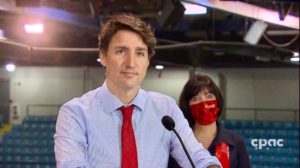
With anti-vaxx protesters dogging Justin Trudeau’s every campaign stop throughout his campaign for office, hurling gravel at the Prime Minister and shouting misogynist comments about his wife Sophie, in the final week of the campaign, Mr. Trudeau has found a vigorous new energy, his campaign now in a more spirited & dynamic gear, taking the fight for “a better Canada” to Canadians across our land.
As occurred in both the 2015 and 2019 federal election campaigns, as Election Day draws nearer, and the prospect of a right-of-centre “backward” Conservative Party once again assuming the reins of power in Ottawa looms, support for the Liberal Party has burgeoned, mostly — almost exclusively — at the expense of the long woebegotten democratic socialist party of Canada, our beloved New Democrats.
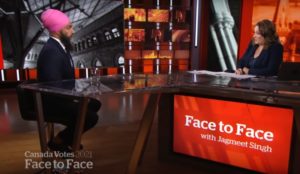
NDP leader Jagmeet Singh did his cause no favours by failing to answer any of the questions placed to him on Tuesday evening by chief CBC political correspondent, Rosemary Barton, who pretty much savaged the under prepared and decidedly underwhelming (at least on Tuesday evening) leader of Canada’s fourth party.
Progressive’s concern: Erin O’Toole praises Alberta’s UCP leader Jason Kenney on COVID-19 response. Late news: O’Toole had asked Mr. Kenney to delay til next Tuesday his vaccine passport announcement.
Not to pile on when a province is in such a crisis, but given how badly @jkenney has handled the pandemic, ignored advice, ignored alarms bells from doctors and nurses and cost lives (24 deaths in last 24 hours) can he survive politically?
— Dawna Friesen (@DFriesenGlobal) September 16, 2021
In the past two weeks, support for the NDP has dropped from a campaign high of 28.4% to its current 17.5% E-Day Nanos poll standing. For most progressive voters, a national child care programme; maintenance of the Canada Child Benefit — which has not only served the interests of young families, but also reduced the child poverty rate in Canada by 40%; and a continued ban on the murderous assault weapons that have killed and maimed so many of our fellow citizens matters.
Implementation of a global best climate action plan, continuing the ban on tanker traffic along British Columbia’s pristine coast; support for the diversity that is Canada in 2021 (which will include a ban on conversion therapy, and an anti-racism strategy that will support and ensure the safety of all persons of colour), while bringing Afghan refugees and Yazidi women exploited and imprisoned by ISIS to Canada — and a hundred other programmes championed by Justin Trudeau’s Liberal government will cause many progressive voters to cast their ballot strategically this upcoming Monday, voting for the Liberal or New Democratic Party candidate best positioned to defeat the Conservative Party candidate.
Justin Trudeau’s Liberal government mounted a massive response to the pandemic, quarterbacking an unprecedented campaign against the threat of a virus that had shaken the economy, legislating necessary programmes to keep Canadians safe and economically whole, while procuring 100 million doses of the Pfizer-BioNTech and Moderna vaccines, and funding three new biomanufacturing facilities to manufacture up to four million doses per month at home, to ensure Canada’s ability to produce sufficient vaccine doses to meet our country’s need.
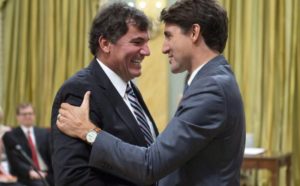
Justin Trudeau bringing his friend Dominic LeBlanc back into Cabinet following his cancer battle.
Last Tuesday, Justin Trudeau’s longtime friend and recent Intergovernmental Affairs Minister Dominic LeBlanc told the Toronto Star’s Tonda McCharles that he thought the Liberals might win a majority government this upcoming Monday. VanRamblings believes Mr. LeBlanc is dreaming in technicolour — although some pundits believe a majority Liberal government is possible, just not probable.
Unless the New Democratic Party vote completely collapses — which seems unlikely, with current electoral prospects suggesting the NDP will, perhaps, better their 2019 election outing, when they achieved a near record low of 15.98% voter approval, and 24 seats in Parliament — the Liberals will likely win a stand pat minority around the 157-seat mark, or should the New Democratic Party really suffer in the voting booth, a minimally increased minority government. A majority federal Liberal government is not in the cards, or so it would seem.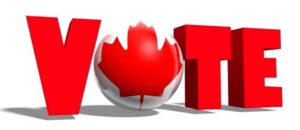 Democracy. Late on Monday evening we’ll know the will of the Canadian people.
Democracy. Late on Monday evening we’ll know the will of the Canadian people.
The final #Elxn44 Curse of Politics podcast, E-Day, Monday, September 20, 2021 | A Liberal minority.
The Curse of Politics podcast, Saturday, September 18, 2021 | The campaign is over — that’s all she wrote.
The Curse of Politics podcast, Friday, September 17, 2021
David Herle states in Friday’s Curse of Politics podcast that on voting day, the NDP vote will collapse.
The Curse of Politics podcast, Thursday, September 16, 2021
